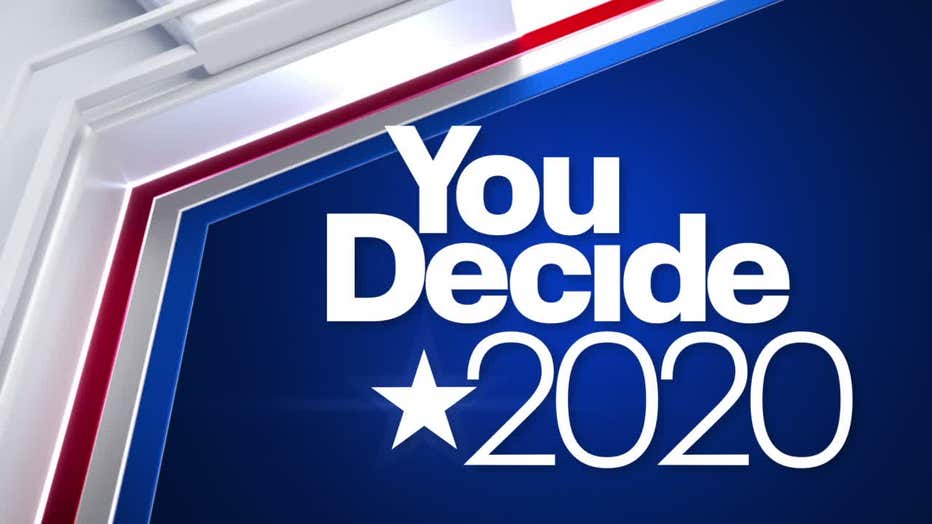Some counting continues, a week after Pennsylvania's primary
HARRISBURG, Pa. - The counting from Pennsylvania’s first foray into mass voting by mail was wrapping up on Tuesday, a week after the primary, with the results of some of races still up in the air.
Elections officials in seven counties, which includes Philadelphia and Pittsburgh, were granted extra time to receive and tally the vote because of practical challenges posed by mass protests over police brutality.

The state says turnout was roughly 2.8 million voters, or 35%, with slightly more than half of all votes coming by mail under a new state law that permits mail-in ballots, no matter the reason. The primary was postponed from April 28 to June 2 because of the coronavirus pandemic.
The election, which featured the first use of new paper-record voting machines in 22 of 67 counties, did have some hitches, including ballots that were too large for machines in Bucks County, said Department of State spokeswoman Wanda Murren. The paper was apparently trimmed by hand so it could be tabulated properly, she said.
In Lancaster County, the print on some paper ballots was too light for machine scanners to read, so those ballots were secured and sent to the county elections office for counting, Murren said.
She said Allegheny County, home to Pittsburgh, was able to successfully handle the state’s largest number of mail-in ballots in part because it purchased top quality high-capacity scanners and machines to open envelopes. Murren encouraged other counties to use federal grant money to make similar equipment upgrades.
Counties should also consider boosting the number of workers, and the Legislature could help ease the pressure on Election Day by letting workers open and process mail-in ballots earlier, she said.
Lisa Schaefer, executive director of the County Commissioners Association of Pennsylvania, whose members run the nuts and bolts of voting in the state, said the issues that did arise were not systemic or statewide problems.
“The primary went as smoothly as we could have hoped, given the perfect storm of challenges we faced trying to hold an election in this atmosphere,” Schaefer said.
County election directors have raised concerns, however, that the greatly expanded mail-in system also generated far more provisional ballots than in comparable primaries, she said. Voters who applied for mail-in ballots and did not receive theirs or wanted to vote in person were directed to fill out a provisional ballot, which has to be checked for eligibility and duplication.
That’s a challenge they hope to address before facing the much greater turnout that is expected during the presidential election in November.
Candidates and their supporters have been watching results come in over the past week, including for the Democratic primary for auditor general. Former Philadelphia deputy mayor Nina Ahmad currently leads Pittsburgh city Controller Michael Lamb by about 2 percentage points in that race, according to the Department of State.
In legislative contests, at least four Democratic incumbents from Philadelphia and its suburbs lost in the primary — Sens. Larry Farnese and Daylin Leach, and Reps. Maria Donatucci and Roni Green.
Farnese lost to Nikil Saval, a writer and democratic socialist, while Leach was defeated by Amanda Cappelletti, a lawyer and township supervisor. No Republicans were on the primary ballot in the Farnese race. Cappelletti will face Republican Ellen Fisher in the fall.
A fifth incumbent state lawmaker, Rep. Adam Ravenstahl, D-Allegheny, also lost.
Other sitting legislators are in close races, according to the state’s running tally.
Rep. Peter Schweyer, D-Lehigh, is up by about 50 votes. Rep. Mike Puskaric, a Washington County Republican, is clinging to a lead of fewer than 200 votes. And Rep. James Roebuck, a west Philadelphia Democrat first elected in 1985, is trailing by more than 400 votes.
There are also tight races in the primaries to succeed retiring state Reps. Rosita Youngblood, D-Philadelphia; Rep. Mark Keller, R-Perry; and Rep. Mike Tobash, R-Schuylkill. None of those races had opposite-party candidates in the primary.
You can check the latest election results in the box below, or click here.

